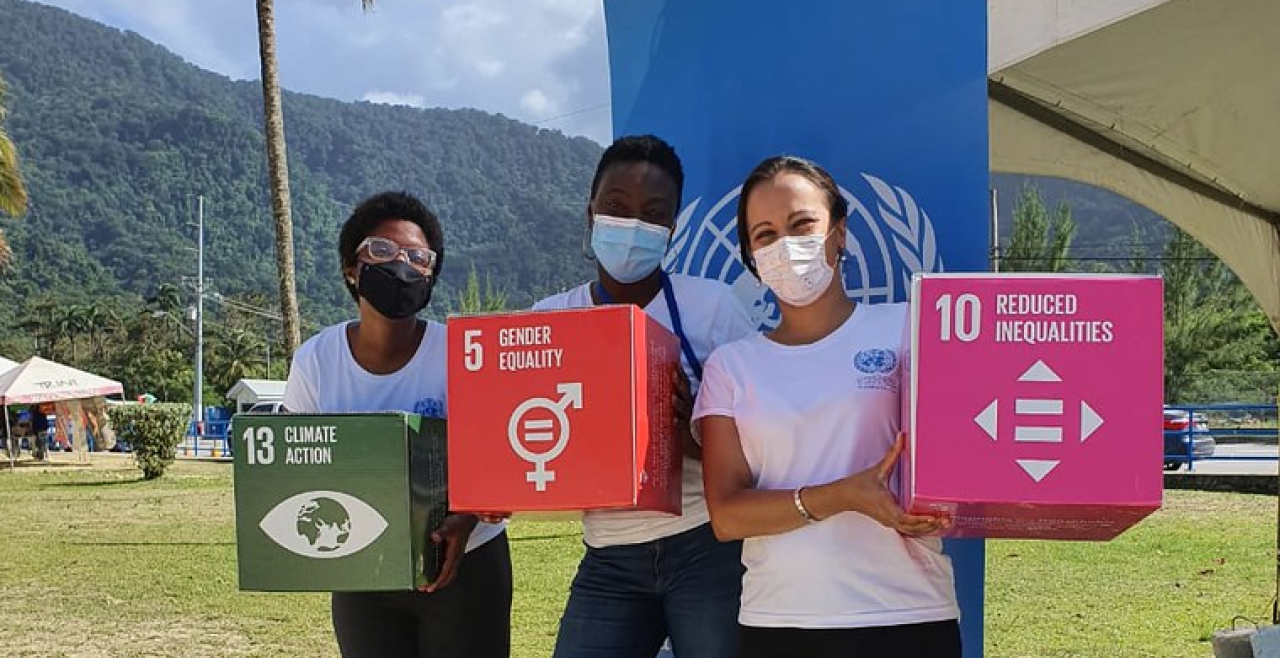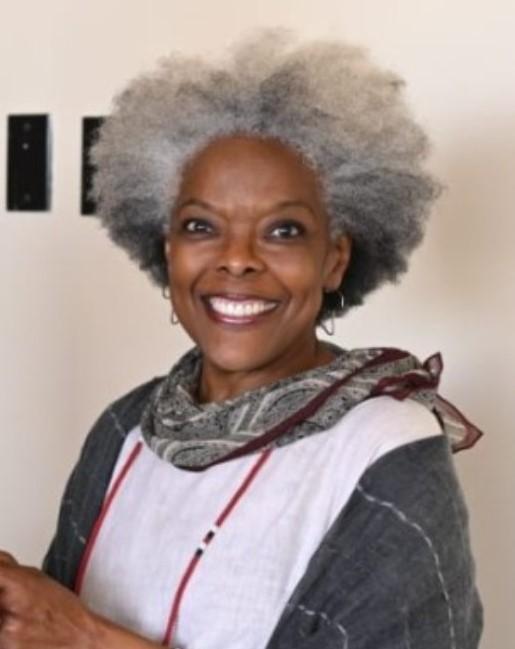Voices from civil society: 'Investment must be made to promote equality and end inequality'

The 68th annual Commission on the Status of Women (CSW68), the UN’s largest annual gathering on gender equality and women’s empowerment, is taking place this month under the priority theme 'Accelerating the achievement of gender equality and the empowerment of all women and girls by addressing poverty and strengthening institutions and financing with a gender perspective'.
Spotlight Initiative invited civil society advocates working on the frontlines of the push to eliminate gender-based violence to share a little about the critical work they do, and to highlight why financing civil society organizations is key to eliminating violence for good.
Terry Dale Ince is a development specialist, social entrepreneur and human rights advocate. She is the founder and convener of Convention for the Elimination of all forms of Discrimination Against Women (CEDAW) Committee of Trinidad and Tobago (CCoTT), a UN ECOSOC accredited volunteer non-governmental organization focused on Advocacy, Education and Public Awareness on and for the sustainable implementation of the principles of the Convention for the Elimination of all forms of Discrimination Against Women.
Can you share a little about your work?
One aspect of my work allows me to build bridges through advocacy. Bridges to duty bearers, policy makers and implementers; bridges to beneficiaries, particularly those who are marginalized; and bridges between communities — emphasizing commonalities which ultimately strengthen institutions which facilitate development for all.
Can you explain why financing frontline feminist movements is so important?
We are in 2024 — six years away from the 2030 Agenda [deadline] — and less than 50 per cent of the milestones have been accomplished. If we are to remain at this pace, the 2030 Agenda will not be accomplished. Financing feminist frontline movements is where the rubber meets the road. Investment must be made in specific actions to promote equality and end inequality.
Can you share an example of how CCoTT has been able to localize a response in a way that a larger NGO or organization could not?
For more than a decade, Trinidad and Tobago has been characterized by what appears to be an unchanging statistic reflecting one in three women experiencing gender-based violence. This high incidence of gender-based violence (GBV) continues to be magnified by various risk factors such as ongoing conflict, substance abuse and lack of healthy communication between partners, and cuts across geographical and socioeconomic boundaries.
Recognizing the urgency of a “whole of community approach” to addressing this issue within the communities of Trinidad and Tobago, CCoTT, designed the initiative 'Love Languages'. This initiative is intended to be a national, evidence-based, relationship-based, youth and young adult curriculum that addresses healthy romantic relationship skills, communication skills, pregnancy, risky sexual behaviour, consent, dating violence, sexual coercion, and many other topics to be utilized in secondary schools and/or young community groups.
The goals included empowering students to express their experiences of inequality and negative gender stereotypes through creative artistic expression and to understand what is personally required of them when engaging in relationships, among other things. The programme was successfully launched at a high school notorious for students exhibiting risky behaviour.
Twenty-two students began the programme, and challenges notwithstanding, eighteen students completed the programme. They were recognized locally at various events during the '16 Days of Activism' in 2023. Several schools have approached CCoTT and expressed interest in implementing the programme. This initiative is not a part of the Ministry of Education curriculum.
Interview has been edited for length.

